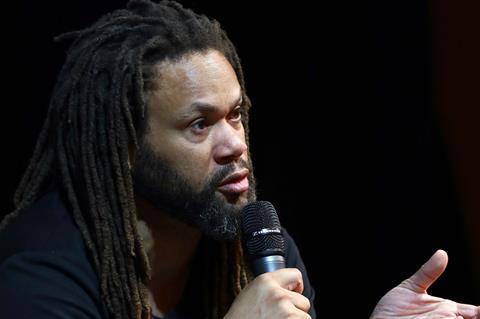
Hollywood is the least diverse business sector in the US, said Franklin Leonard, CEO and founder of The Black List, at the Toronto International Film Festival (TIFF) this week.
“It’s less diverse than oil and gas, less diverse than finance, less diverse than Donald Trump’s cabinet was,” Leonard said.
He suggested the the hegemony reflected in the film industry results in “tragic” consequences for political ideology.
“Why is it easy for people to chant ‘build the wall’? Why is it easy for people to embrace the idea of a type of Muslim man?” he continued. “It’s because the people that have exposure to those communities get them through our media, and the exposure that they get is pretty narrow and non-representative of those communities as a whole.”
Leonard claimed Hollywood loses $10 billion annually as a result of “anti-Black bias” so “the bright side is, ”once changes in representation are made, Hollywood will make a lot more money. So even if you can’t wrap your head around doing good for doing good sake, do it for the wrong reasons,” he said.
Leonard was participating in a TIFF panel called ‘Microsession: Underrepresented to Unstoppable’ and was joined by Parks and Recreation actress and Language Lessons director Natalie Morales.
Morales talked of the pigeonholing she experiences as a Latina actress.
“There’s three archetypes [for a Latina actress]. It’s either the maid, the sexy seductress, or the New York Rican and tough girl,” she said. “And I never really fit into any of those rules. They felt inauthentic. Not that those people don’t exist… but they’ve been so grossly overrepresented, as far as Latina women and Latino people are concerned, that there’s so much more out there.”
Minhal Baig, director of One Night and Hala and writer of BoJack Horseman, said filmmakers need to make an effort to represent communities authentically.
“It can’t just be storytelling about someone discovering their identity, That’s like phase one,” she said. “Then you move through those phases and suddenly you have Muslims in fantasy stories, and swords and sandals, and Muslim pirates….The more storytelling especially in what I’m looking at which is American Muslims in media, film and TV, the more of that there is out there, the less scrutiny there is on every single story to be exactly your experience.”
The future of the film industry
The panel addressed the detrimental effects refusing to adapt with change will have on cinema, particularly in comparison to social media and streaming services.
“It’s great that the directors and writers and showrunners are looking a little different now but it’s not enough. It’s not going to make a dent in the entire business,” Morales said. “And, frankly, I think we’re going lose out because movies and TV are already less popular with TikTok and YouTube, because people that are creating content are not commanded and run by CEOs.”
Baig said executive decisions have not yet coincided with changes in demographics and viewing preferences. “We are still a little bit behind in responding to what audiences actually want to see. Because it’s not what a bunch of CEOs at the top feel like people want to watch because if that were true, you would have more people going to theatres than ever.”
Leonard added, “For a very long time, film, as an industry, as a sort of leisure pursuit was protected, there wasn’t competition in the way that we spent our time. That has changed. And given that change, it requires really smart marketing and corporate strategy, and resources to compete in that marketplace.”
He said one of the reasons the industry has historically failed is because it has not embraced diversity enough. “Diversity alone will not solve all the problems that we have, but it just happens to be the least expensive, and fastest way for us to gain a competitive advantage in the marketplace,” he said. “The results are more movies from more diverse places, and better economic outcomes.”

























No comments yet